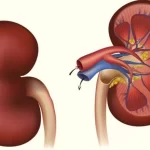Dialysis
Friends, kidneys are located on either side of the spinal cord. Under normal circumstances, the kidneys perform the task of removing waste materials from the body and these waste materials are taken out of the body through urine. Dialysis is the most important function of the kidneys, which is to remove all the waste of the body. Hence this process is also known as renal replacement therapy.
Dialysis is a filtering process that removes waste products and excess fluids from the body. When the kidneys are unable to fully perform their function. Then the amount of unnecessary excretory substances and water in the body increases greatly. When kidneys are not able to function properly, a process in which toxic waste and excess fluid are extracted from the human body is called dialysis. (CKD) There is no cure, but there is support.
Why is dialysis done?
When a person’s kidneys stop functioning properly and are not able to filter waste materials from the body, the waste starts accumulating in the body. This can cause serious complications. It is one of the main options when the kidneys are severely damaged and the kidney fails. Due to renal failure, blood is not filtered properly leading to serious side effects. When kidney diseases remain untreated, they give rise to serious complications. Eventually causes renal failure. The process of dialysis helps in removing unwanted substances and fluids, so Dialysis is necessary.
In most cases, renal failure is permanent, but it is not always necessary. Acute kidney failure can be treated in most patients and the patient requires dialysis for some time. When the kidney is cured, most patients do not require dialysis. There is no possibility of renal recovery in chronic renal failure and end-stage renal failure. Dialysis is the only treatment for this. In very severe conditions, the patient’s kidney transplant may be required along with the Donor’s kidney. Dialysis should normally be done three times a week.
Preparation Before Dialysis
- For the preparation of surgery, you have to take care of the following things and follow all the advice as your doctor says.
- Your doctor should know every medical problem and medicine related to you.
- If you have had any surgery before this, then tell your doctor about it.
- If you have a pacemaker in your body, this should also be known by your doctor.
- All this information is very important. Pregnancy during dialysis treatment can be risky. Successful pregnancy during dialysis is possible, but it requires constant monitoring and monitoring of the patient’s condition. If you are planning a pregnancy during dialysis treatment, then talk with your doctor. This will help to avoid complications.
Dialysis Post-care.
Some patients experience discomfort due to the process of this. The process of this is painless, yet in some cases, the needle may cause discomfort. Some patients may experience reduced blood pressure, stomach upset, headaches, cramps, and vomiting. After consecutive sessions of treatment, these symptoms disappear and recovery also begins quickly.
Diet plan
Patients using dialysis treatment should follow dietary and fluid restrictions. There is a restriction on the number of fluids you are consuming because the dialysis machine is not able to extract the amount of excess fluid for two to three days. The buildup of excess fluid in the blood, lungs, and other tissues can lead to serious complications. Depending on the size and weight of the patients, the fluid intake is decided by doctors.
Most patients are allowed 1000–1500ml of fluid per day. There is also a need to carefully plan the diet of patients as consumption of minerals can increase the risk of mineral accumulation in the body. Patients are asked to contact the dietician for a better diet plan while undergoing the dialysis procedure. Diet varies depending on the patient. These patients are told not to consume foods containing potassium and phosphorus. It is advisable to reduce salt intake to avoid complications.
Pregnancy plan
During dialysis, male patients can plan pregnancy with their partner. However, in female patients, pregnancy can cause many problems. Kidney failure and pregnancy together can cause health problems for both the woman and the child. Apart from this, it can further aggravate kidney disease. Consult your doctor once before planning a pregnancy. This can prevent complications in the womb.
Success Rate
The success rate of dialysis is based on the kidney damage and health status of the patients. Until patients are advised to undergo kidney transplant surgery, they need a dialysis procedure to treat renal failure. Life expectancy is determined according to the treatment and treatment received by the patients. After dialysis, the average patient can live for 5 to 10 years. There are many examples of patients who have lived for more than 20 years. Patients should follow a healthy lifestyle during this period. It helps them to increase their quality of life.





